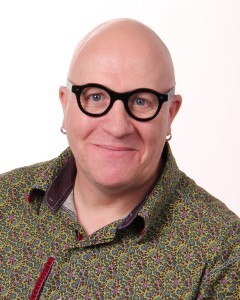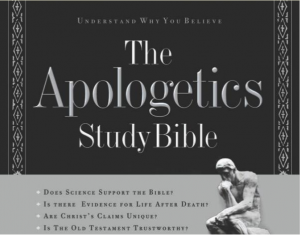Randal Rauser's Blog, page 153
May 20, 2016
94. For those who doubt, this book’s for you: Bill Anderson on Ecclesiastes


Dr. Bill Anderson
I first encountered existentialist philosophy in university. Thinkers like Sartre, Kafka and Camus had a big impact on me as they explored the seeming absurdity of existence with an unflinching bravery. Even if I didn’t accept their conclusions, I had to admit that there was an authenticity in their writing that was often absent from the Christianity with which I’d been raised. Reality was messy, frequently bleak, and often absurd. Doubt was, for many, a more constant companion than faith. And for every mountaintop experience of faith, the topography of life seemed to include at least one valley of despair, not to mention a slough of despond.
For those familiar with the existentialist voice, it may be something of a revelation to find that the Christian Bible knows that experience well. One finds it in the penetrating ruminations of Job, the angst of Lamentations, the withering cries of the psalmist. But it’s most philosophically penetrating expression is found in the book of Ecclesiastes.
In this episode of The Tentative Apologist Podcast we sit down for a discussion of Ecclesiastes with Dr. Bill Anderson. Bill has a PhD from University of Glasgow and is Professor of Religious Studies at Concordia University of Edmonton where he teaches in the areas of Old Testament, Hebrew, and popular culture. He is also the Director of the Canadian Centre for Scholarship and the Christian Faith and Editor in Chief of the Canadian Journal for Scholarship and the Christian Faith.
Bill has explored the voice of Qoheleth in Ecclesiastes in two books, Scepticism and Ironic Correlations in the Joy Statements of Qoheleth? (Gorgias 2010) and Qoheleth and Its Pessimistic Theology: Hermeneutical Struggles in Wisdom Literature (Edwin Mellen Press 1997). In this conversation he takes us into the rich and earthy wisdom of this most profound and eloquent of literary works.
May 19, 2016
On visiting Alcoholics Anonymous. A lesson for the church?
A friend of mine recently accompanied his friend (no, it wasn’t me) to an Alcoholics Anonymous meeting. My friend — let’s call him Dave — has no problem with alcohol. But Dave was deeply impacted by the group all the same, in particular the vulnerability, openness, humility, and welcome embrace extended by all those gathered. The impact was such that Dave said he’d love to return. Never mind that he has no problem with alcohol. This is a group of truly authentic people with whom he’d love to be a part. These are people that don’t put on airs. They are open, vulnerable, and they welcome every outsider, whether you’ve been sober for ten years or ten minutes.
Imagine if the church were like that local chapter of Alcoholics Anonymous. We could change the world.
May 18, 2016
A simple thought experiment to show that the world is getting better
The other day when I wrote the article “Many Christians think the world is getting worse. Are they right?” I wrote a companion article which approaches the same topic from another angle. You can read that article at the blog Unfundamentalist Christians by following the link below:
Dear Christian, the world isn’t getting worse. In fact, it’s probably getting better.
May 16, 2016
Many Christians think the world is getting worse. Are they right?
Christians from my evangelical tradition tend to be predisposed to view the world in pessimistic terms as if the trajectory of history ensures a spiral into moral chaos and decadence. This is largely due to the influence of premillennial eschatology which predicts precisely this decline prior to the supernatural return of Christ. When you adopt that perspective, you start looking for anything to feed your assumption. Gay marriage? Check. Transgender washrooms? Check. Clearly the world is going to hell in a handbasket!
With that in mind, I’ve been struck by comparing my own experience with high school thirty years ago with that of my teenage daughter. On multiple points there has been a noticeable improvement. Mind you, I’m not talking merely about my personal experience vs. that of my daughter. (Personally, I had a great time at school. For example, I was class president in grade 12, carried to power by my rock band’s accompaniment to my stump speech and an advertising blitz courtesy of friends in the art department that included the slogans “Nothing Compares 2 Randy” and “You can’t touch Randy. But you can vote for him.”)
Rather, I’m talking about the culture of high school as I experienced it vs. that experienced by my daughter. On multiple points, the culture of high school today appears to have improved markedly. Granted, the veridical strength of such anecdotal comparisons is limited. But limited is still worth noting, particularly if one has reason to believe the comparison is indicative of overall trends.
Violence
Let’s start with this: my elementary and high school (we had no junior high) had a lot of fights. Most days there would be a scrap out by the bike racks as masses of seemingly civil kids melted into a nightmarish Lord of the Flies melee. Bullying was common. The classic 1980 film My Bodyguard depicts a world that I had witnessed. And I got in my own share of fights — especially in elementary school. In grade 7 the police prevented a “rumble” between the grade 7 kids of my elementary school and that of a neighboring school.
My daughter has never witnessed a physical altercation at school, a fact that still amazes me. And there is a far greater awareness — and social stigma — today of bullying. Granted new forms of bullying have emerged (e.g. cyberbullying), and granted as well that there is still much work to do. But my formative education was the wild west compared to that which my daughter has experienced.
And that’s not the only difference when it comes to violence. When I was in school thirty years ago teachers were also violent. Not violent in the English boarding school way, but violent in the sense that they would yell and scream at wayward kids, launch projectiles (erasers, chalk) at your head, twist your ear, or pinch your arm. To be sure, not all teachers behaved in this manner. But many did, and nobody (at least none of the students) thought it was abusive or inappropriate.
Racism, Sexism, and other Prejudices
Thirty years ago my schools were largely monochromatic, homogeneous in ethnicity and religion. We weren’t overly racist — two of my best friends were Asian (Chinese and Japanese). But I think it is fair to say that we were soft racists. We didn’t consider ourselves anti-Semitic, for example, but we still referred to shrewd bargaining for a lower price as “jewing” somebody and discount Tuesday at the movie theatre was “Jewsday”. As with the violence, we never stopped to reflect on how blushingly racist this was.
When it came to issues like feminism, we laughed about the idea of women firefighters. Homosexuals were a punchline or an accusation: “You faggot!” The physically and mentally handicapped existed on the periphery of existence.
My daughter’s friends are a rainbow of ethnicities and religions. Consider this: her first three best friends were a Sikh, a Buddhist, and a self-described atheist. Racial slurs are not tolerated. Those with various disabilities have been integrated into the community while facilitating greater awareness. Inflammatory epithets of sexual minorities are not tolerated in polite company (though one suspects the matter may be different in the boys locker room).
The other day I was with my daughter when Guns ‘n’ Roses “Paradise City” started playing on the radio: “Take me down to Paradise City where the grass is green and the girls are pretty!” My daughter was shocked. “Omigosh!” she said with a withering moral rebuke, “That is so sexist.”
Tobacco Usage
I assume alcohol abuse remains a problem among young people and in many ways drug use has become far worse. But I am heartened that the social stigma of tobacco usage is far greater than it once was. Indeed, that’s an understatement since when I was in high school there wasn’t any social stigma. We still lived in an age of Joe Camel and the Marlboro Man. It’s no surprise that we thought smoking was cool. After all, as kids we were raised on Big League Chew and Popeye Cigarettes that issued a puff of powdery smoke to replicate the genuine experience as closely as possible.
But no more. There is now far greater regulation on the marketing of cigarettes to children to say nothing of the general restrictions on tobacco advertising.
The Environment and Animals
Growing up there was no such thing as a Blue bin, and the only “recycling” we did was turning torn jeans into cutoffs. Our first real awakening to the environment came in the mid-1980s with the growing concern over acid rain and the hole in the ozone layer. But even so, concern for the environment was hardly on our radar screen.
And concerns over the ethics of food production was not on the horizon. I don’t know that I even met a vegetarian until university.
Today concern for the environment is an abiding concern. And my daughter has several vegetarian and vegan friends. She has also stated her own desire to limit her meat intake driven both by concerns for environmental sustainability and animal welfare.
Conclusion
I could continue enumerating examples, but these should suffice to make my point. Christians (and others) who bemoan the declining state of civilization have a highly selective read of the data. By many measures (indeed, I’d say by most measures) the western world is a far more civil and humane place today than it was thirty years ago.
May 14, 2016
Understand Why You Believe? The Problem of Confabulation
 Here is the cover of The Apologetics Study Bible. Note the tagline at the top: “Understand why you believe.” Uh? Anybody see the paradox here? If you do not yet understand the grounds you have for belief, then those grounds cannot presently be your grounds for belief. What the tagline should have said is something like this: “Understand some reasons to believe” or “Understand why you can rationally believe”.
Here is the cover of The Apologetics Study Bible. Note the tagline at the top: “Understand why you believe.” Uh? Anybody see the paradox here? If you do not yet understand the grounds you have for belief, then those grounds cannot presently be your grounds for belief. What the tagline should have said is something like this: “Understand some reasons to believe” or “Understand why you can rationally believe”.
The point here is not merely that coherence is often sacrificed on the altar of quick and memorable advertising slogans. This tagline also illustrates the general problem of confabulation whereby people fabricate grounds for belief after the fact and then treat those grounds as the original basis for belief.
I suspect by now some partisan critics of Christian apologetics will be anxious to add this instance of confabulation to their toolbox of points-by-which-they-critique-apologetics. But that would be to miss the point. Everybody is liable to engage in confabulation. The lesson is not to worry about identifying it in your chosen outgroup but rather identify it in your ingroup, and indeed in yourself.
May 13, 2016
A Quick Review of the Gagnon-Kirk Debate on Homosexuality
I have followed the debates over homosexuality and the church for some time now. Frankly, it’s difficult not to given that the furor over homosexuality is turning churches against one another and rending denominations into pieces. While I strive to approach all matters with an air of detached objectivity, I must say that in the formal debates I’ve seen or listened to, the traditionalist debaters inevitably provide stronger arguments than the gay-affirming side. The former tend to have strong scriptural arguments while the latter tend to rely, rather unabashedly, on subjective experience. And this leaves them terribly vulnerable to the charges of idolatry, subjectivism, and slippery slopes.
When I mentioned this to a friend he commended the following debate between Robert Gagnon (who is, in my opinion, the most effective debater for the traditional prohibition view … even if he is as prickly as a cactus) and Daniel Kirk. Unlike Gagnon, Dr. Kirk doesn’t seem as prickly as a cactus. And if the question was which of the two to invite down to the pub then my answer would be different. But our concern here is not pub companions, it’s the arguments. More about that anon.
First, in case you want to learn more about these two individuals, you can visit Gagnon at his website and you can visit Kirk at his website.
Now for the debate. Kirk begins by agreeing that the Biblical writers condemn homosexual activity. However, he then argues that just as the early church was led by the Spirit to accept Gentiles while dropping the requirements of circumcision, dietary laws and Sabbath keeping, so the Spirit is now calling the church to accept (practicing) homosexuals into their community. (Presumably, just as ancient Israelites would have been appalled at the inclusion of uncircumcised Gentiles who eat bacon so early Christians would have been appalled at the inclusion of practicing homosexuals. But in each case we have the call of the Spirit to expand the boundaries to include a group once excluded.)
All this is well and good … except that Kirk falls into the same trap that besets every other defender of a gay-affirming view that I have heard. And Gagnon exploited that weakness by greasing that slippery slope, focusing in particular on the issues of incest and polyamory (or as we used to call them, “swingers”). In short, if the taboo of homosexuality can be lifted in the name of inclusion and love, what of the taboo against incestuous relationships and open marriages with multiple partners? I didn’t hear Kirk even begin to try addressing these issues, and yet in my view his inability to do so is fatal to his position.
Kirk did land some blows (if we’re going to use the boxing metaphor), but he failed to follow through. For example, he noted the relative ease with which the church accepts Christians who are divorced and remarried despite the fact that Jesus considers many of these relationships as tantamount to adultery. This is a very important point, one which motivated Lewis Smedes to change his views on homosexuality. Smedes, a very highly respected evangelical ethicist from Fuller, concluded that just as the church learned to embrace divorced and remarried couples despite the brokenness of their relationships, so the church should learn to embrace homosexuals for the same reason. (You can read Smedes’ original essay here.)
Gagnon responded to Kirk’s point with a dismissive “Two wrongs don’t make a right” rejoinder. From a rhetorical perspective, and for those who only care about winning debates, this is a wise move. You see, it seems to acknowledge the salience of Kirk’s point while rendering it ineffectual. But for those who are concerned with truth rather than rhetoric, Gagnon’s response is a failure. To see why, all one needs to do is ponder the logic of his response for a moment. Is he saying that the church ought not accept divorced and remarried people into its fellowship? If he does believe this, then he will lose a significant part of his audience. If he doesn’t, then he needs to explain why it is okay to diverge from clear biblical teaching on this point but not on others.
Sadly, Kirk never followed up on that point. And so, his crucial point on divorce and the church was marginalized off to the sidelines.
Beyond that, Gagnon was an eloquent and forceful defender of the traditional view. He was a master of the biblical and historical material (though I must admit that his his philosophical attempts to argue that man is the complement of woman are very strained).
In sum, Gagnon clearly won this debate in my humble opinion.
May 12, 2016
The Apologist Who Wrote About the Atheist Who Didn’t Exist: My Interview with Andy Bannister
Here is my new guest interview at Bold Cup of Coffee speaking with Christian apologist Andy Bannister about his popular 2015 book The Atheist Who Didn’t Exist: Or the Dreadful Consequences of Bad Arguments.
May 10, 2016
An Evening of Christianity and Islam in Dialogue
Here is the Taylor Seminary / Wahl Centre Crucial Conversations Dialogue that I moderated in April between Christian apologist Andy Bannister and Muslim Imam Sherif Ayoup. It’s a fascinating exchange with two very intelligent and articulate individuals:
Violent readings of the Bible and Defending the Indefensible
This past weekend I attended a conference on atheism and Christianity sponsored by Concordia University’s Canadian Centre for Scholarship and the Christian Faith. It was a very good conference with those in attendance flying in from as far away as Los Angeles, Harvard University, and our plenary speaker (Richard Swinburne) from London.
One of the sessions I attended consisted of a young graduate student presenting his preliminary thoughts on defending the Bible from the new atheist critique of biblical violence. Alas, by now the “new atheists” are getting rather old. One would wish this student had picked a more sophisticated interlocutor.
But what most struck me about the presentation was how quickly this young man took to defending the indefensible. In his twenty minute presentation he claimed that stoning is not a cruel form of execution. (When I asked him whether he had ever witnessed a stoning, he admitted that he hadn’t. So I suggested he watch the dramatic reenactment depicted in The Stoning of Soraya M.)
Then he defended the dropping of atomic bombs on Hiroshima and Nagasaki. But it wasn’t simply that he defended the intentional nuking of civilian populations. It was that he took it as obvious that this would be viewed as morally justified.
So at what point does the objectification of fellow human beings and defense of moral atrocities reflect poorly on one’s biblical hermeneutic?
May 9, 2016
93. Do Christians and Muslims worship the same God? A conversation with Andy Bannister


Dr. Andy Bannister (left) with Imam Sherif Ayoup at Taylor Seminary’s Crucial Conversations Conversation on Islam and Christianity.
In December 2015, Wheaton College Professor Larycia Hawkins expressed her support for Muslim Americans in a Facebook post. She wrote: “I stand in religious solidarity with Muslims because they, like me, a Christian, are people of the book. And as Pope Francis stated last week, we worship the same God.”
The impact of Professor Hawkins’ post was explosive. Soon everyone from journalists to pastors, theologians to average Christian congregants were locked in heated debate and probing questioning on this question: do Christians and Muslims really worship the same God? And what does it even mean to say that they do?
In this episode of The Tentative Apologist Podcast we discuss these issues with Dr. Andy Bannister. Dr. Bannister is Director and Lead Apologist for RZIM Canada. He has a PhD in Islamic studies and is author of the academic monograph An Oral-Formulaic Study of the Qur’an (Lexington Books, 2014).
This conversation is a follow-up to our earlier conversation with Drake De Long-Farmer of Bold Cup of Coffee. In that wide-ranging conversation Dr. Bannister helpfully guided us through several theological, practical and cultural issues in the engagement with Islam in the West. In this podcast we center the discussion on that central question raised by Dr. Hawkins: do Christians and Muslims worship the same God?




